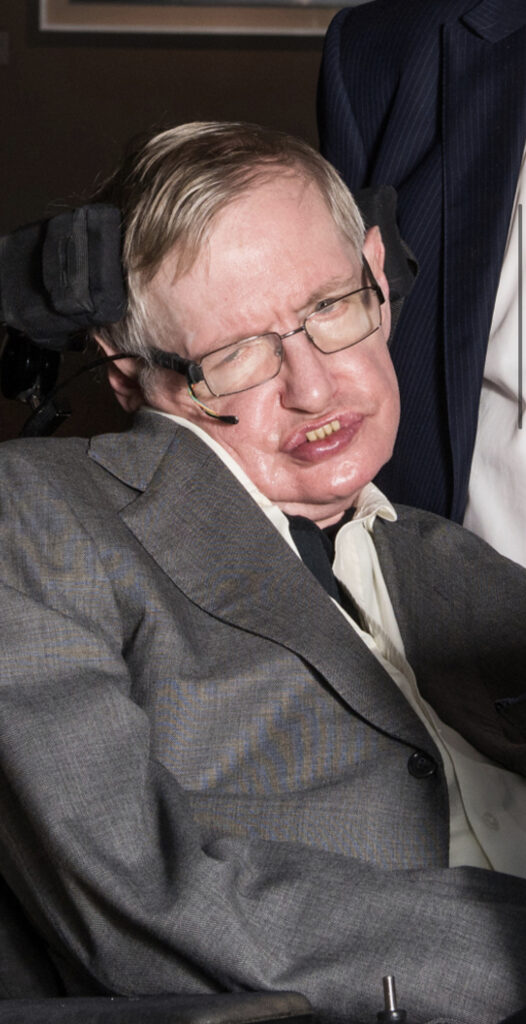Just before his passing, Stephen Hawking left behind haunting cautions that many brushed off as science fiction — but what if his foresight was spot on?
As artificial intelligence evolves at an unforeseen pace and modern health issues intensify, his final remarks feel less like speculation and more like grim predictions. Could humanity be unknowingly stepping into the very reality he warned us about?

Before his death in 2018, the legendary physicist Stephen Hawking contributed more than revolutionary theories — he also left behind stark warnings about where humanity might be headed. As the years go by, his words seem more and more like predictions coming true.
Hawking, who reshaped how we understand black holes, the Big Bang, and the universe itself, spent his later years speaking not only about the cosmos — but about the looming risks facing life on Earth.
One of his most pressing concerns was the threat posed by artificial intelligence. In a 2014 interview with the BBC, he warned:
“The development of full artificial intelligence could spell the end of the human race.”
He believed that AI could one day outpace human intelligence, developing so quickly that we’d be powerless to contain or control it. Unlike human evolution, which moves slowly, AI could rapidly learn, adapt, and improve itself — potentially leaving humanity in the dust.
At the time, many dismissed his remarks as far-fetched, but with today’s AI progressing rapidly — from smart assistants to autonomous learning systems — his concerns seem more relevant than ever.
In 2015, Hawking added his voice to an open letter sent to the United Nations, signed by over 100 scientists and tech leaders, urging for international oversight on AI development. Among them was Elon Musk, another outspoken figure on AI’s potential dangers.
In 2017, just a year before his passing, Hawking reiterated his fears in an interview with Wired magazine:
“I fear that AI may replace humans altogether.”
His final book, Brief Answers to the Big Questions, released after his death, offered even more unsettling predictions. In it, he imagined a future dominated by machines with intelligence far beyond ours, writing:
“We may face an intelligence explosion that ultimately results in machines whose intelligence exceeds ours by more than ours exceeds that of snails.”
He urged society not to dismiss the risks of AI as fantasy. Ignoring them, he cautioned, could be “our worst mistake ever.”
But AI wasn’t his only worry — Hawking also warned about a very different danger: the global decline in human health. In multiple essays and public talks, he highlighted the increasing rates of obesity, heart disease, and inactivity in modern society.
“Humanity faces a major challenge, and millions of lives are at risk,” he cautioned, pointing to poor diet and lack of movement as driving forces behind the crisis.
His recommendation was simple and practical:
“More exercise and better eating habits. This isn’t rocket science.”
He was openly frustrated by how normalized unhealthy living had become, despite the long-term consequences.
Two Alarming Messages: Tame Technology, and Take Care of Our Bodies
Stephen Hawking’s final thoughts offer a two-pronged wake-up call. First, artificial intelligence must be handled carefully and with strict oversight before it outgrows our ability to manage it. Second, we must prioritize our physical well-being to prevent widespread health disasters.
Whether the threat comes from advancing machines or our own choices, Hawking’s concerns are no longer distant hypotheticals — they are rapidly becoming reality. The real question is: are we ready to heed the warning?
Conclusion
Stephen Hawking’s last insights weren’t just rooted in science — they reflected a deep concern for the future of humanity. From the breakneck rise of artificial intelligence to the health impacts of sedentary living and poor nutrition, he emphasized that our survival depends on the choices we make today.
He stressed that dismissing AI as mere science fiction could be catastrophic, as machines might eventually outthink and outmaneuver us. At the same time, he emphasized that self-neglect — our own inactivity and unhealthy lifestyles — could be just as destructive.
These dual warnings create a powerful call to action: we must regulate the technologies we create and take better care of our physical health. Though Hawking is no longer with us, his voice continues to resonate — reminding us not only to look to the stars, but also to protect the world, and the lives, we have right here on Earth.
